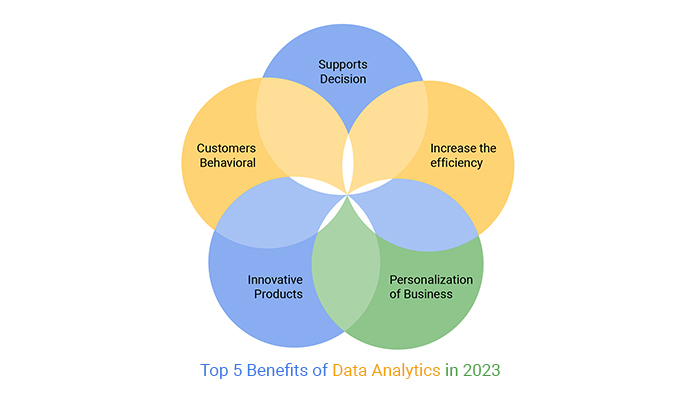Benefits of Analytics – Unleashing the Power of Data
Welcome to our comprehensive guide on the benefits of analytics. In this article, we will explore how leveraging analytics can revolutionize your business and help you make data-driven decisions. By harnessing the power of data, you can gain valuable insights that will propel your organization to new heights.
Enhanced Decision Making
Analytics provides a wealth of information that enables businesses to make informed decisions. By analyzing data, you can identify patterns, trends, and correlations that may not be immediately apparent. This allows you to make proactive decisions based on concrete evidence rather than relying on intuition or guesswork.
Improved Operational Efficiency
Implementing analytics can lead to significant improvements in operational efficiency. By analyzing data related to your business processes, you can identify bottlenecks, streamline workflows, and optimize resource allocation. This not only saves time and money but also enhances overall productivity.
Enhanced Customer Insights
Analytics offers a deep understanding of customer behavior and preferences. By analyzing customer data, you can gain insights into their buying patterns, demographics, and preferences. This knowledge allows you to tailor your products, services, and marketing strategies to meet their specific needs, ultimately leading to higher customer satisfaction and loyalty.
Strategic Planning and Forecasting
Analytics plays a crucial role in strategic planning and forecasting. By analyzing historical data and market trends, you can make accurate predictions and develop effective strategies to stay ahead of the competition. Whether it’s identifying emerging market trends or forecasting future demand, analytics empowers you to make data-backed decisions that drive success.
Risk Mitigation
Analytics can help identify potential risks and mitigate them before they become significant issues. By analyzing data, you can identify patterns that indicate potential threats or vulnerabilities. This enables you to take proactive measures to minimize risks, protect your business, and ensure long-term sustainability.
Optimized Marketing Campaigns
Analytics is a game-changer when it comes to marketing. By analyzing data from various marketing channels, you can measure the effectiveness of your campaigns, identify the most profitable channels, and optimize your marketing budget. This allows you to allocate resources where they yield the highest returns, resulting in more targeted and successful marketing efforts.

Analytics is a powerful tool that can transform the way you do business. By leveraging data and analytics, you can gain valuable insights, make informed decisions, and stay ahead of the competition. From enhanced decision-making to optimized marketing campaigns, the benefits of analytics are vast and far-reaching. Embrace the power of analytics and unlock the true potential of your business.
Frequently Asked Questions about the Benefits of Analytics
1. What are the benefits of using analytics in business?
Analytics helps businesses gain valuable insights from data, enabling them to make informed decisions, identify trends, improve efficiency, optimize processes, and enhance customer experiences.
2. How can analytics improve decision-making?
Analytics provides businesses with data-driven insights, allowing them to make more accurate and informed decisions. It helps identify patterns, trends, and correlations that may not be apparent through traditional methods.
3. Can analytics help businesses increase their revenue?
Absolutely! By analyzing customer behavior, market trends, and sales data, businesses can identify opportunities for revenue growth. Analytics helps optimize pricing strategies, target the right audience, and improve marketing campaigns.
4. What role does analytics play in improving operational efficiency?
Analytics allows businesses to identify bottlenecks, inefficiencies, and areas for improvement in their operations. By analyzing data, businesses can streamline processes, reduce costs, and enhance overall efficiency.
5. How can analytics enhance customer experiences?
Analytics helps businesses understand customer preferences, behavior, and needs. By analyzing customer data, businesses can personalize their offerings, provide targeted recommendations, and improve customer satisfaction.
6. Is analytics only beneficial for large businesses?
No, analytics can benefit businesses of all sizes. Small businesses can leverage analytics to gain insights into their operations, customer behavior, and market trends, enabling them to make data-driven decisions and compete effectively.
7. What are the advantages of using predictive analytics?
Predictive analytics uses historical data and statistical algorithms to forecast future outcomes. It helps businesses anticipate customer behavior, demand patterns, and market trends, enabling them to proactively respond and stay ahead of the competition.
8. Can analytics help businesses detect fraud?
Yes, analytics plays a crucial role in fraud detection. By analyzing patterns, anomalies, and suspicious activities in data, businesses can identify potential fraud cases, prevent financial losses, and protect their assets.
9. How does analytics contribute to better marketing strategies?
Analytics provides insights into customer preferences, buying behavior, and marketing campaign performance. It helps businesses target the right audience, personalize marketing messages, allocate resources effectively, and measure the success of their marketing efforts.
10. What are the long-term benefits of investing in analytics?
Investing in analytics leads to long-term benefits such as improved decision-making, increased efficiency, enhanced customer satisfaction, higher revenue, better resource allocation, and a competitive advantage in the market.




